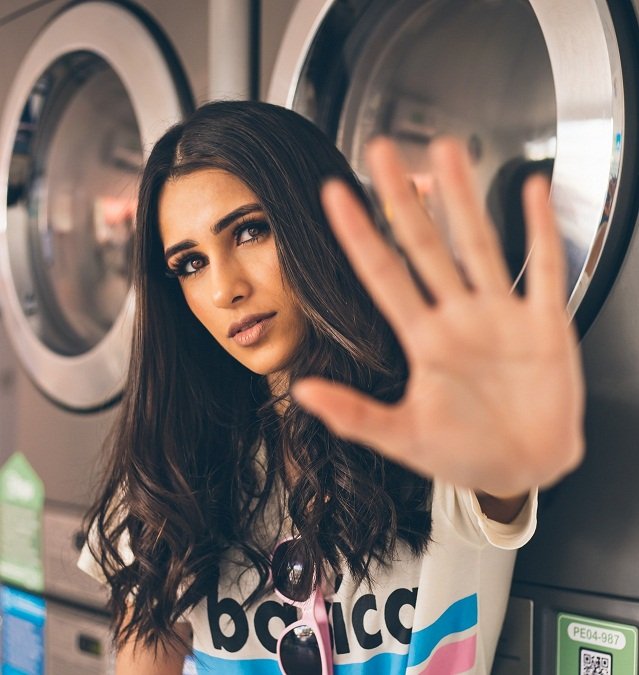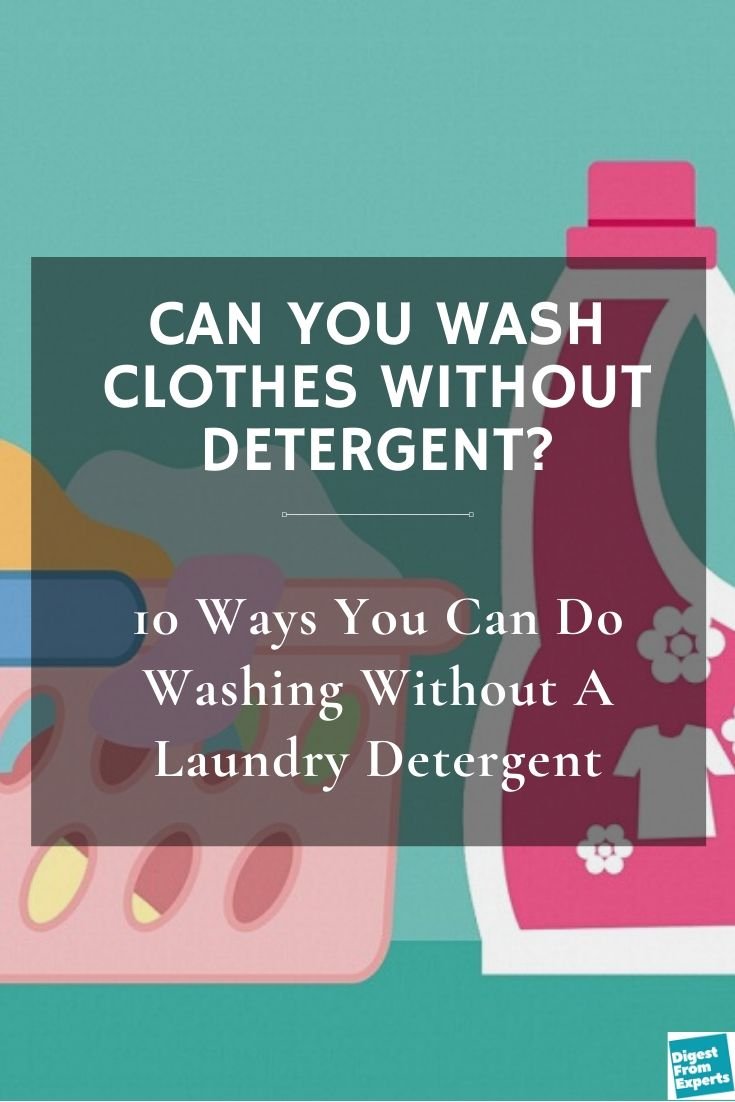There’s few things better than having clean clothes. The feeling of being well-groomed can go a long way towards increasing your confidence and helping you achieve your goals.
But what if you can’t use conventional detergents to keep your clothes clean? Whether it’s due to monetary issues, eco-friendly preferences, or allergies and sensitivities, there are a plethora of reasons many seek alternative ways to clean their clothes.
10 Household Items to Wash Your Laundry When Detergent Runs Out

If you’re looking for a way to avoid using conventional detergent but still want your clothes to look fresh, here are a few ideas:
1. Shampoo –
The closest alternative to straight laundry detergent, shampoo can be used to help remove dirt and clean fabrics. The Shampoo is most effective when used in handwashing methods and can cause too many suds in a normal washing machine if used incorrectly.
Depending on the shampoo, you should be able to use less than the normal amount normally used with laundry detergent, too. If the shampoo has a thicker viscosity, treat it like a concentrated dose and use sparingly. If, however, the shampoo is watery and runny, you may want to add a little more in your laundry load.
2. Bar soap –
Conventional bar soap can be a time saver when you want to do laundry and don’t have (or want) conventional detergent. The best method when using bar soap is to add shavings directly to the load, and the thinner you can make the shavings, the easier it will be to break them down and activate the cleaning agents.
Bar soap is also best used in handwashing methods and should be used very sparingly in washing machines. Be sure not to use soaps that contain oils, though, as these may stain your clothes. Read the ingredients on bar soap packaging before using it to make sure!
3. Liquid dish soap –
Similarly as effective as shampoo, a little bit of dish soap can go a long way to getting your clothes clean. Check to make sure there aren’t any oils or bleaching agents in the ingredients and use less than the normal amount you would use if it were laundry detergent (usually 1 tablespoon should do the trick for a full load).
Depending on how thick the liquid dish soap is, it might be best to pour it directly into the washing machine drum so that it doesn’t clog the tubes that normally disperse liquid laundry detergent. While dish soap is also best used in handwashing methods, it can also be used in washing machines, though a little can go a long way so use sparingly.
4. Borax –
Borax was used in the past before commercial laundry detergents became readily available, and with good reason! A cup of borax in a load of dirty laundry can cause the laundry to come out looking fresh and clean, and for very little money! Borax can be used in both hand washing and in washing machines.
5. Just water –
If you’re in a pinch and your clothes are lightly-soiled, then running them through a rinse cycle without any sort of suds can be a quick fix too.
6. Baking Soda –
Ever notice how baking soda is heavily featured in toothpastes? It’s not by accident! Baking soda has abrasive qualities that can remove dirt and stains from many surfaces, including clothing and fabrics.
Use half a cup of baking soda to help give your laundry detergent a boost, or use a full cup if you’re avoiding detergent altogether. Baking soda can be used in hand washing and in washing machines (though is usually more effective in washing machines and not handwashing).
7. Lemon Juice –
Remember when it was a trend to use lemon juice to lighten hair in the summer? Not only can it lighten hair, but it can also clean your clothes! Lemon juice is best used to whiten whites, so avoid using it with dark colors.
It can be used in both washing machines and hand washing, though it’s best to use it as a soaking agent. If you have a nasty stain you need to get rid of quickly on a white piece of clothing, make a paste with lemon juice and salt and apply it directly to the stain. The paste will “lift” the stain right off!
8. Vinegar –
While it might sound like the smelliest option, vinegar is actually a great natural alternative to conventional laundry detergents at lifting stains and brightening white or light fabrics. If your washing machine has a deep rinse cycle, be sure to activate it to help rinse the scent of vinegar off the clothing.
9. Vodka –
If you’re really pressed for time and need to remove smelly odors from a piece of clothing, a little bit of vodka can go a long way towards neutralizing the smell (though it’s not effective for stains).
Add a little vodka and water to a spray bottle and spritz the garment as close to the source of the smell as possible. Allow the piece to air out to remove any lingering vodka smell.
10. OxiClean (or Oxygen-based bleaches) –
If you have some OxiClean or a similar oxygen-based powder bleach lying around, this could be a great way to get your clothes feeling fresh and clean. Use half a cup directly in the washing machine drum.
Conclusion:
No matter the reason you decide to steer away from conventional laundry detergents, you should be able to find an alternative easily in your pantry. Give one of these 10 methods a shot and find the best method that works for you!

Megan Brame-Finkelstein is an award-winning entrepreneur, podcaster and journalist who lives in Rochester, United States. She completed her Bachelors Degree in Social Sciences at the University of Pittsburgh and also worked as a Director of Marketing and Communications at ER select for almost 2 years. She is a Muckrack listed journalist and contributed to some of the top publications and Magazines online. Some of her top works are published on Huffington Post, Good Housekeeping, Elite Daily and the New York Times. Megan Brame loves clothes, fashion, and hot coffee.
